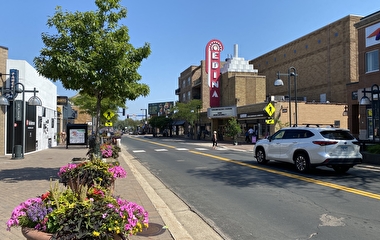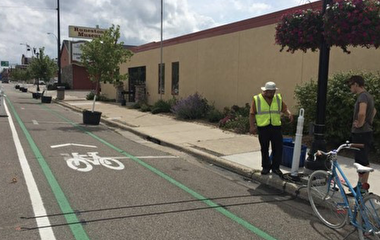Many U of M faculty members are working on the leading edge of smart technology. One of them is Saif Benjaafar, a national authority on sharing economy business models and the smart technology that propels them. Benjaafar discussed his research and its implications in the summer 2019 issue of the College of Science and Engineering’s Inventing Tomorrow magazine.
In the article, Benjaafar points to ride-sharing companies like Lyft and Uber to explain the kind of analysis in which he specializes. “They do dynamic pricing, so they sense in real time what the supply of drivers is and what the demand of customers is, and then they price accordingly using sophisticated algorithms. A lot of the work I do is in that area—how should a platform set prices as supply and demand change in time and in space. That’s one notion of ‘smartness,’” said Benjaafar, Distinguished McKnight University Professor in the Department of Industrial and Systems Engineering.
“Another notion is matching. Which drivers do you match with which rider? Do you pull the trigger and match [the first available driver to the rider] or do you wait for a better match? If you wait too long you could lose the rider,” he said—and drivers don’t want to be idle for too long, either, because they’re not earning money then.
“These platforms have enabled micro-entrepreneurship, enabling micro-sellers to function as if they have the scale of a large company,” Benjaafar said. He’s keenly interested in environmental sustainability, and his work tends to focus on shared mobility because of its potential for reducing environmental impacts.
“One of the key ideas of the sharing economy is that there’s excess capacity in the world that goes untapped. So if you think of your car and all of the time it sits idle, it’s depreciating and occupying valuable real estate,” he said. “Before we had these online platforms, it was difficult to leverage that kind of excess capacity.”
It’s a balancing act, Benjaafar said. “There’s a possibility that everybody wins—that consumers benefit because now they can fulfill their needs without the hassle of ownership, and the service provider benefits by monetizing an expensive asset.”
But there’s also the potential for overconsumption, he explained, again using car-sharing as an example. Consumers who might otherwise walk, bike, or use public transit may choose to drive when that choice becomes accessible. “This is where public policy comes into play,” he said. Government can intervene by providing incentives for consumers to make the lowest-impact choice for any given situation.
Other challenges remain, Benjaafar said. And whether the on-demand economy ends up enhancing societal well-being overall depends partly on whether and how these challenges are addressed. Someone whose main source of income is driving for a ride-sharing company doesn’t have employer-sponsored vacation or health insurance, for example.
“If I’m driving for Uber, I’m not just supplying my time,” he explained. “I’m also supplying my car. And I’m responsible for maintenance and insurance. So there’s this fundamental shift in who bears a lot of the risk.”
The shift is already well underway, Benjaafar said, so it’s important to wrestle with its pitfalls now.
“I think the rules of the game should not be left in the hands of the platform operators and service providers,” he said. “Our research group is unique, because we’re stepping back and looking at the broader implications for society.”
Benjaafar is the director of the Initiative on the Sharing Economy, which he and CTS established in partnership with other faculty members across the U. It is administered by CTS. Visit the Initiative's website for the latest news and trends on smart services.
(Adapted with permission from CSE Inventing Tomorrow, summer 2019; written by Susan Maas.)



